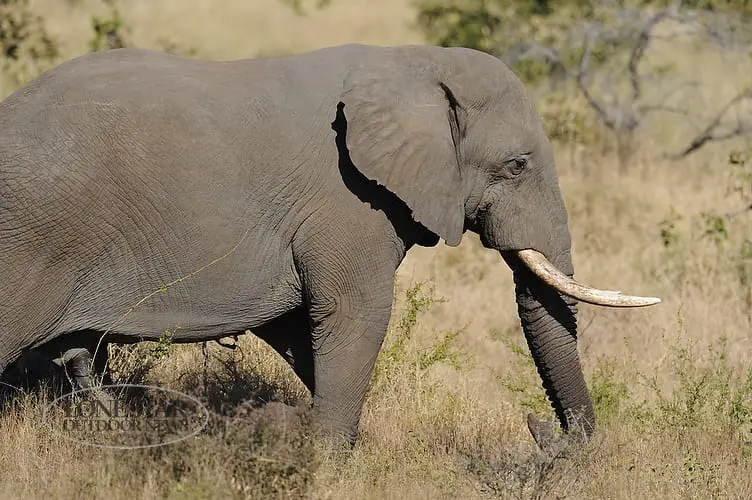Relatively few hunters will ever hunt an elephant.
But every hunter who supports science-based wildlife conservation and management has reason for concern about the Obama administration’s recent ban on importing lawfully hunted elephant trophies.
The U.S. Fish and Wildlife Service announced in April that elephants hunted in Tanzania and Zimbabwe in 2014 may not be imported to the U.S.
Citizens who are ignorant of the differences between legal hunting and illegal poaching, “May have cheered the ban,” said Dallas Safari Club Executive Director Ben Carter, “given all the recent headlines about elephant poaching, wildlife trafficking and the federal government destroying its confiscated stockpile of smuggled ivory.”
“Even most sportsmen, who usually are offended when they’re treated like poachers, didn’t pay much attention, as if the ban would affect only those few hunters interested enough, and wealthy enough, to actually hunt an elephant,” he added.
But Carter said the ban sets a dangerous precedent for hunting and conservation overall.
Here’s why:
1. Lack of Data — The U.S. Fish and Wildlife Service said the move was meant to protect elephant populations, but cited only anecdotal evidence of problems while acknowledging a lack of reliable information. Fact is, elephants in certain areas of Zimbabwe (and Botswana) are overpopulated and destroying their own habitat. DSC has offered to help the agency collect the data it needs to consider an informed reversal of the rule. The agency has not responded.
2. Removing Conservation Funding — Sustainable-use hunting is the foundation beneath a proven conservation system that pays for biologists to monitor elephant populations, water for elephants in arid habitats, law enforcement to protect elephants from poachers, and much more. Obstructing hunting de-funds this system.
3. Political Influence — The U.S. Fish and Wildlife Service is a world leader in conservation, but this ban seems so arbitrary and capricious – so unscientific – that DSC suspects it followed outside political influence. The timing of the rule relative to midterm elections also is suspect. Conservation’s forefathers fought to build a model based in science and free of coercion and political agendas. Breakdowns cannot be tolerated.
4. Bad PR — Legal, regulated, ethical hunting is unrelated to illegal poaching and trafficking. Yet, more and more, all are lumped together in the rhetoric of politicians and bureaucrats. This ban is just the latest example. Obama and the U.S. Fish and Wildlife Service voice concern over elephant poaching —and then actively thwart lawful hunting? At best, it’s a lost opportunity for federal leaders to explain long-successful, science-based, sustainable-use conservation.
5. Lawsuits and Divisiveness — Environmental and animal-rights extremists pioneered the profitable tactic of suing the federal government over procedural trivialities, gouging taxpayers for reimbursement of legal fees, and then using frivolous rulings as a basis for fundraising and membership drives. Hunters, by and large, haven’t needed such schtick. We have science, history and rapport on our side, and DSC encourages the sporting community to continue to take the high road with partners in conservation. Whenever possible, better to overwhelm agencies with useful biological data than with court cases.
6. Locals Matter — A tool for sustaining and managing wildlife, safari hunting also is vital to rural communities in Africa. Livelihoods are supported economically – and lives are supported literally, as hunting provides protein to hungry people. Each lawful elephant hunt provides a tremendous amount of each.
7. Africa Isn’t America — U.S. citizens are accustomed to federal intervention through the Endangered Species Act. But there is no similar legislation or funding or expectation in Africa. The species that thrive are those with tangible, measurable value. If hunting goes away, what incentive does a rancher find for keeping herds of grazing gemsboks? Or cattle-eating lions? Or elephants? The old saying, “if it pays, it stays,” is still true on the Dark Continent. This is on-the-ground conservation reality is too often ignored by ill-conceived initiatives like the recent ban.
Photo by Lili Sams, LSON.



1 comment
WE AREN’t STOPPING PETA!
GO HUNTERS
HOORAY
Comments are closed.